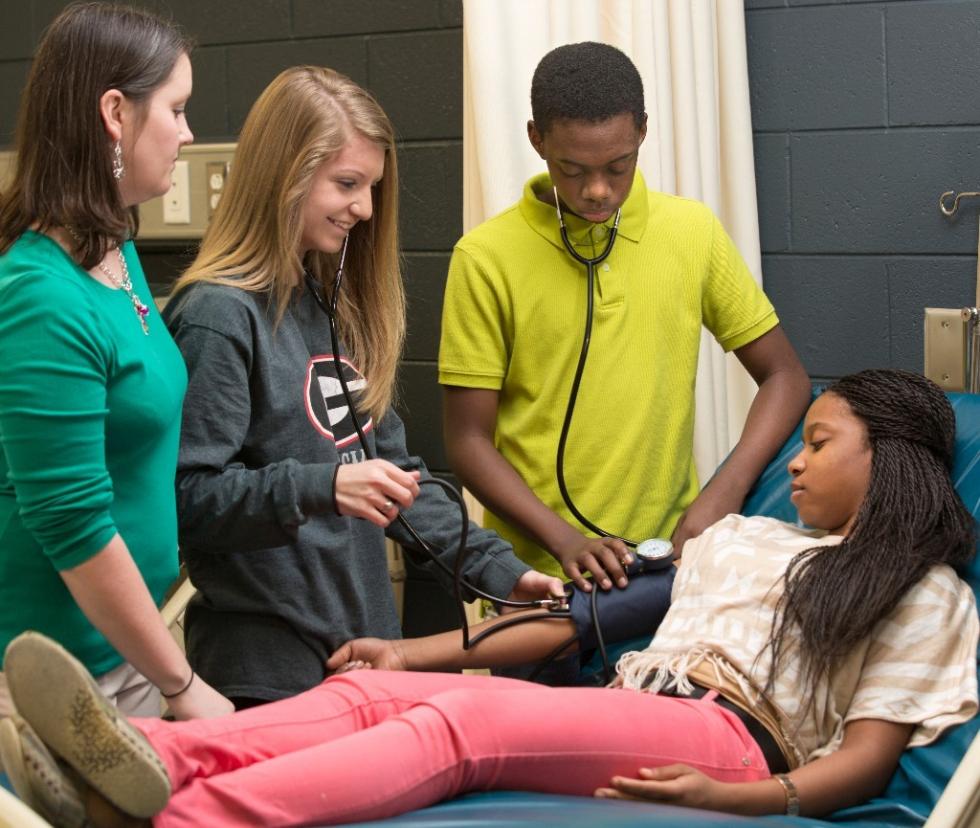Many states are increasing their investment in career pathways
that increase credential attainment and employment for youth and
adults. Perkins V and the Workforce Innovation and Opportunity
Act (WIOA) both offer funds to support pathway development.
SREB’s career pathway consultants work with secondary,
postsecondary, industry and workforce leaders to identify labor
market needs in the state or region and design seamless pipelines
leading from high school to postsecondary programs and good jobs.
New pathways might begin with our Advanced Career curricula or target
other high-demand, high-tech fields in the state or region.
The pathways SREB develops in partnership with states, districts
or regional consortia are effective, affordable
and sustainable. We:
- Engage stakeholders in defining pathway system goals
- Map and assess career readiness policies and programs
- Identify required knowledge, skills and dispositions
- Help partners plan for implementation and improvement
Georgia’s Nursing Pathway
SREB recently worked with education and industry partners in two
states to develop pathways leading from high school to college
and employment in the fields of nursing and engineering
technology.
In Georgia, SREB partnered with WellStar Health System, the
Technical College System of Georgia, the University System of
Georgia and the Georgia Department of Education to develop and
pilot a new nursing pathway.
Rising ninth-graders with an interest in nursing careers will
complete a special health care curriculum and take college-level
nursing courses at Chattahoochee Technical College. In high
school, students will complete 26 hours of nursing prerequisites,
attain state nursing aide certifications and participate in
on-site clinical experiences with WellStar.
After graduation, the dual credits students earned will count
toward their nursing degrees. Students will also receive clinical
placements and interview opportunities with WellStar upon
graduation.



